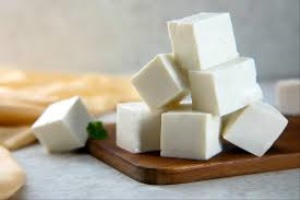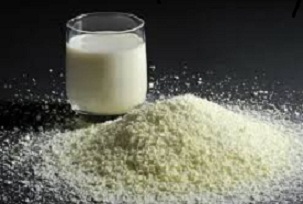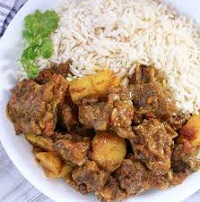Paneer Nutrition Content
Paneer Nutrition

Every 100 grams of paneer contains:
- 265 calories,
- 8 grams of fat,
- 2 grams of total carbohydrate.
- 3 grams of protein and 208 mg of calcium
The nutritional value of paneer is high in calcium and protein. It provides 31% of the daily required calcium and 2% of the daily required potassium. Building teeth and bones is aided by calcium.
In India, a sizable portion of people follow a vegetarian diet. Half of the milk produced in its natural state is consumed by Indians. Different milk products are made from the remaining portion.
These include cheese, ice cream, paneer, butter, ghee, and milk powder. Milk is curdled with vinegar or lemon to make paneer. It is a dairy product with high levels of lactose, proteins, and milk lipids.
It is a fantastic source of nutrients for developing kids, adults, babies, and expectant mothers. Paneer contains potassium, which improves memory, and selenium, which helps in infertility therapy.
Table of Contents
Paneer nutritional benefits ~ what are the benefits of eating paneer?
- Strengthens bones and teeth: Rich in calcium, paneer aids in the development of strong bones, muscles, and teeth. Paneer prevents gum disease because it has low lactose content; it also helps prevent dental cavities.
- Enhances the body’s metabolism: Increased body metabolism enhances digestion and prevents fat from accumulating in the body. Paneer is rich in linoleic acid, an essential fatty acid that aids in fat metabolism.
- Minimizes joint and body pain: Omega-3 and omega-6 fatty acids found in paneer aid in the fight against arthritis and are therefore beneficial to anyone experiencing joint pain.
- Stops the skeleton from deforming: With the aid of vitamin D, paneer aids in preventing bone deformation that can cause hip and joint discomfort. Additionally, paneer contains magnesium and vitamin K, both of which support the growth of strong bones.
- Stops strokes: The potassium in paneer lowers blood pressure and lowers the risk of stroke. In addition to aiding with fluid retention, potassium may also assist in avoiding muscle cramps.
Other nutritional benefits of paneer include:
- Pregnant women may also benefit from the presence of omega-3 since it lowers the risk of abnormalities and stillbirth.
- For vegetarians, the main source of omega-3 and omega-6 fatty acids in the body is paneer.
- In addition, the calcium in paneer lowers women’s risk of developing osteoporosis.
- boosts the immune system
- reduces the risk of cancer
- Strengthens memory and focus
- Lessens the stress of menopause
- Raises the sperm count
- Enhances skin
- Sustains your hunger for longer
- Raises the red blood cell count
What is Paneer?
The word “paneer” comes from the Persian word “panir,” and its introduction to India has been credited to Iranian, Afghan, and Portuguese invaders and immigrants.
Regardless of who brought it, though, this non-fermented, non-melting, lightly flavored farmers’ cheese is now a staple of Indian cuisine. paneer is a fresh, unaged cheese. Another name for paneer is Indian cottage cheese, and it is most likely an Indian invention.
To make paneer, you’ll need an acidic food like lemon juice, sour cream, vinegar, or citric acid to turn milk into a spreadable cheese. To separate the curd from the whey, it is then sieved through muslin fabric.
The texture of paneer varies, going from soft and spongy to slightly solid, depending on how long it is pounded and it doesn’t melt during cooking. Cubes of paneer are frequently added to curries by cooks.
In many Indian, Afghan, Pakistani, and other South Asian cuisines, paneer is also commonly fried or breaded.
Paneer Nutrition Facts and Contains
- Proteins: When it comes to vegetarian diets, paneer is one of the best sources of protein. Each of the nine necessary amino acids is present in paneer, or cottage cheese. Proteins are also important for building and repairing tissue, keeping our immune systems strong, and keeping our blood at a healthy volume.
- Fat: Paneer has about 15% fat. It’s high in saturated fat. Nevertheless, it also contains monounsaturated fat (MUFA), a good fat that lowers blood levels of LDL, or bad cholesterol. The monounsaturated fatty acid (MUFA) oleic acid found in paneer has been linked to reduced blood pressure. The omega-3 polyunsaturated lipid alpha Linoleic acid can be found in paneer.
- Potassium and Calcium: Paneer contains high levels of both calcium and phosphorus. Although there is evidence that calcium can enhance skeletal health, phosphorus is necessary for calcium to function properly.
- Glycemic Index: Paneer is an excellent option for individuals on a low-carb diet due to its low glycemic index.
- Paneer sometimes contains high moisture content
Nutritional value of paneer ~ Raw paneer’s nutritional value
Paneer in its raw state is highly nutritious. The method of consumption also plays a role in maximizing the health advantages of paneer. You can eat it plain, or season it with pepper and salt if you like. If you’re more of a curry kind of person, then add the paneer right into the pot without frying it first.
Now let’s look at some paneer nutrition facts: The U.S. Department of Agriculture (USDA) states that paneer has the following nutritional information per 100g:
- Energy: 321 kcal
- All Fat: 25 grams
- 57g of total carbohydrates
- Protein in Total: 21.43g
- 714 mg of calcium
- 8 mg of magnesium
- 18 mg of sodium
- Amount in IU: 714
- Fat Acid Content: 16.07g
- Mg of cholesterol: 89
100 gram paneer protein calories:
For every 100 grams of paneer, there are 265 calories, 20.8 grams of fat, and 1.2 grams of total carbohydrates. There are 208 mg of calcium and 18.3 grams of protein.
- Paneer calories 50g: the number of calories in 50g of paneer is 129
- Paneer calories 1 cup: 1 cup (122g) contains 365 calories
- 20g paneer calories: 20g of paneer conatins 51.6 calories
Paneer protein per 100g ~ how much protein is in 100 gm paneer?
Approximately 18 to 20 grams
The well-known Indian cheese paneer has about 18 to 20 grams of protein per 100 grams. It is therefore a good source of protein, particularly for vegans. Its firm texture and mild flavor make it adaptable to a wide range of culinary preparations.
How to make paneer at home
Items Needed to Prepare Paneer
- Eight glasses of whole milk
- White vinegar or six teaspoons of lemon juice,
Recipe Guidelines for Paneer
- In a large pot, bring 8 cups of whole milk to a boil over medium heat.
- While the milk is warming, squeeze some lemon juice and set it aside. To ensure that the vinegar doesn’t overshadow the milk, we advise diluting it with 1/4 cup water first.
- When the milk reaches a boiling point, add the vinegar or lemon juice mixture.
- Give the pot’s contents another five to ten minutes to cool.
- Swirl everything thoroughly, and the milk should start to curdle immediately.
- Put cheesecloth inside a colander and set it inside the sink.
- Milk curds should be strained with cheesecloth.
- Rinse the curds with cold water to get rid of any vinegar or lemon juice residue.
- To construct a ball of soft cheese, gather the corners of the cloth and twist them together. Extract as much water as possible.
- Place the cheese on a dish, cover it with plastic wrap, and use a small stack of plates to weigh it down.
- Press the cheese for one to two hours. It is also safe to store in the refrigerator.
It’s time to get the Paneer in the oven once it’s had a chance to chill. The cheese can be preserved for up to a week if stored in the refrigerator in an airtight container. The cheese can also be frozen for a few months.
Comparison and contrast of paneer and tofu
Both paneer and tofu come in white blocks and are used in a wide variety of Asian cuisines. Both dishes require pressing and curdling during manufacturing. Each takes on the flavors of its marinades despite having a subtle flavor all by itself.
These foods also provide vegetarians with great doses of calcium and protein. Tofu and paneer in particular are complete protein sources, which means they have every amino acid your diet needs to contain.
It’s crucial to eat enough protein to keep your muscles and weight in check. Consuming tofu and paneer will help you get the protein you need. Regarding health benefits, there aren’t many other parallels between the two foods.
Unlike paneer, tofu contains isoflavones. These plant-based chemicals might help shield people from developing specific illnesses.
In reality, consuming soy products high in isoflavones, such as tofu, may reduce your chance of developing osteoporosis, heart disease, and several types of cancer. Yet, the study is inconsistent, and the findings could differ.
Finally, paneer is made from milk, whereas tofu is entirely plant-based. As a result, although paneer can be a part of vegetarian diets but not vegan ones, tofu can be included in diets that strictly prohibit all animal products.
Side effects of consuming too much paneer
For vegans, panner ranks high on the list of must-have foods. In addition to being delicious, these velvety, soft chunks made of milk are also healthful. Panneer, which is high in calcium and protein, helps the body achieve the required amounts of both nutrients.
However, it’s never a good idea to have too much of anything. Eating too much paneer might be bad for your health in certain ways.
If you truly adore paneer and find it difficult to abstain from it for an extended period of time, you should educate yourself on the negative consequences of ingesting excessive amounts of it. The following are a few negative outcomes of bingeing on paneer:
- Issues associated with digestion: Due to its high lactose content, paneer may cause gas and bloating. You may get dyspepsia and abdominal pain. Overindulgence in paneer, which is high in protein, may cause bloating or acidity since it takes longer to digest.
- Heart Rate: Consuming paneer is not recommended for those with high blood pressure. This Indian cheese raises the possibility of hypertension, which can cause a number of heart issues.
- Gaining weight: Sadly, you will have to cut paneer out of your diet if you’re attempting to lose weight. Paneer is high in fat and will prevent you from reaching your weight loss goals.
- Intolerants: Some people may develop allergies after consuming paneer, albeit this is an uncommon occurrence. Some people may experience allergic responses to paneer that lead to rashes, itching, or loose motion.
When buying paneer, make sure to verify its expiration date and only buy it from reputable stores.
Conclusion
For many centuries, paneer has been a mainstay of many nations’ diets. It’s not only the ideal garnish for curries and other meals, but it’s also a great source of many important vitamins and minerals.
Paneer can be used as a delicious addition to many different meals. A paneer is a great option if you’re searching for a tasty, nutritious, and vegetarian-friendly meal or if you just want to include more vital vitamins and minerals in your diet.
It’s a healthy substitute for cheese that you can easily find at most local grocery stores and has a host of possible health benefits. With all these wonderful advantages, it’s no surprise that paneer has been a staple food for centuries and is still cherished by many cultures.
Though it’s not talked about much, the nutrition facts for paneer are sufficient justification to try this interesting cheese substitute!

FAQs
Is paneer a fat or protein?
Protein
Tofu and paneer in particular are complete protein sources, which means they have every amino acid your diet needs to contain. It’s crucial to eat enough protein to keep your muscles and weight in check. To fulfill your protein requirements, you can eat both paneer and tofu.
How healthy is paneer?
Paneer contains several beneficial nutrients and is a good source of protein. Mineral elements including calcium, magnesium, and potassium abound in it. This could be crucial in controlling and reducing elevated blood pressure.
Your blood pressure may be controlled by eating paneer, which is high in minerals and proteins, as part of a healthy, balanced diet.
Does paneer have more protein or egg?
One entire egg contains approximately 7 grams of protein, but 100 grams of paneer contains about 14 grams. To put things in perspective, a big egg weighs about 50 grams, thus 100 grams of egg would contain 14 grams of protein.
Unexpectedly, therefore, paneer and eggs have almost the same amount of protein.
Does paneer have more protein than milk?
In 100 grams/265 kcal, paneer contains barely any carbohydrates, 18 grams of protein, and 20 grams of fat. In 60 kcal per 100 ml, milk contains 3g protein, 3g lipids, and 6 carbs. You could also use a paneer nutrition calculator online to check.
What is paneer called in English?
In English, paneer is typically referred to as cottage cheese.
Does boiling paneer reduce protein?
Paneer is therefore a higher-quality protein source than yogurt. Is paneer better eaten raw or fried? It is best to eat paneer raw since cooking or roasting it does remove some of its nutrients.
Paneer Nutrition ~ Do you have to cook paneer?
Definitely not! The problem is, that when paneer is put into a sauce, it tends to crumble. Fry the paneer cubes to give the cheese a crispy coating that helps it hold its shape when cooked in a spicy curry sauce.
Paneer Nutrition ~ Can I eat paneer raw?
Curdling heated milk with lime juice, vinegar, or citric acid results in the animal product known as paneer. It can be used to make a range of meals and eaten raw.
Paneer Nutrition ~ Is paneer junk food or not?
You cannot classify paneer as junk food. Additionally, it is a great way for vegans to acquire extra protein when made with low-fat milk. Because paneer is high in protein and calcium, which are linked to weight loss and muscle growth, it is also excellent for managing weight and maintaining a healthy BMI.
Paneer Nutrition ~ Is paneer better for you than chicken?
Paneer has less protein per 100 grams than chicken, but it also has a healthy dose of cholesterol, which regulates blood flow. Unlike chicken, paneer has a limited amount of salt as well. That said, chicken is a superior option for repairing and growing muscle.
Paneer Nutrition ~ Can I eat paneer and egg together?
The expert states that eating paneer and eggs together is safe. Protein, calcium, vitamin B12, and iron are all abundant in both.
The main source of protein for vegetarians is paneer, however, non-vegetarians can also eat both. Both are excellent options for weight loss because they are high in protein.


